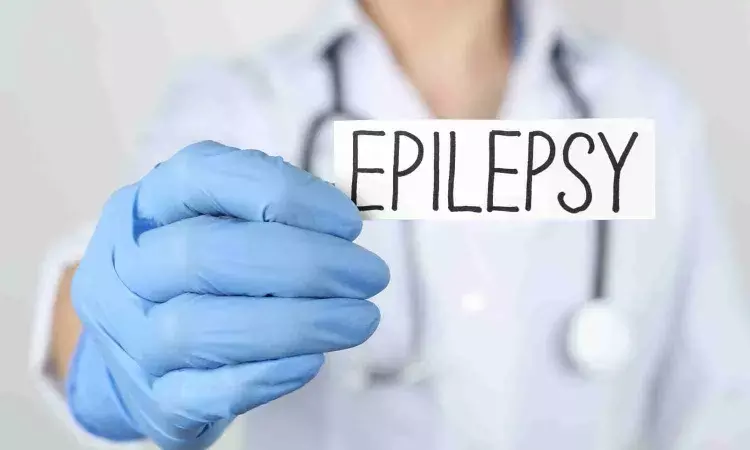- Home
- Medical news & Guidelines
- Anesthesiology
- Cardiology and CTVS
- Critical Care
- Dentistry
- Dermatology
- Diabetes and Endocrinology
- ENT
- Gastroenterology
- Medicine
- Nephrology
- Neurology
- Obstretics-Gynaecology
- Oncology
- Ophthalmology
- Orthopaedics
- Pediatrics-Neonatology
- Psychiatry
- Pulmonology
- Radiology
- Surgery
- Urology
- Laboratory Medicine
- Diet
- Nursing
- Paramedical
- Physiotherapy
- Health news
- Fact Check
- Bone Health Fact Check
- Brain Health Fact Check
- Cancer Related Fact Check
- Child Care Fact Check
- Dental and oral health fact check
- Diabetes and metabolic health fact check
- Diet and Nutrition Fact Check
- Eye and ENT Care Fact Check
- Fitness fact check
- Gut health fact check
- Heart health fact check
- Kidney health fact check
- Medical education fact check
- Men's health fact check
- Respiratory fact check
- Skin and hair care fact check
- Vaccine and Immunization fact check
- Women's health fact check
- AYUSH
- State News
- Andaman and Nicobar Islands
- Andhra Pradesh
- Arunachal Pradesh
- Assam
- Bihar
- Chandigarh
- Chattisgarh
- Dadra and Nagar Haveli
- Daman and Diu
- Delhi
- Goa
- Gujarat
- Haryana
- Himachal Pradesh
- Jammu & Kashmir
- Jharkhand
- Karnataka
- Kerala
- Ladakh
- Lakshadweep
- Madhya Pradesh
- Maharashtra
- Manipur
- Meghalaya
- Mizoram
- Nagaland
- Odisha
- Puducherry
- Punjab
- Rajasthan
- Sikkim
- Tamil Nadu
- Telangana
- Tripura
- Uttar Pradesh
- Uttrakhand
- West Bengal
- Medical Education
- Industry
Brivaracetam promising in epilepsy patients with cognitive or psychiatric comorbidities: Data from EXPERIENCE analysis

USA: In a groundbreaking development for epilepsy treatment, new subgroup data from the International EXPERIENCE Pooled Analysis has shed light on the effectiveness and tolerability of brivaracetam in patients with epilepsy who also suffer from cognitive or psychiatric comorbidities. Epilepsy, a neurological disorder characterized by recurrent seizures, often coexists with other conditions, complicating treatment and management. The study findings offer hope for improved outcomes in this challenging patient population.
In the large descriptive real-world analysis, brivaracetam was well tolerated and effective in adults with epilepsy and cognitive or learning disability (CLD) or psychiatric comorbidities (PC), as shown by low incidences of cognitive, psychiatric, and behavioral treatment-emergent adverse events (TEAEs). The findings were presented at the 2024 American Academy of Neurology (AAN) meeting and published in the prestigious medical journal Neurology.
EXPERIENCE/EPD332 was a pooled analysis of retrospective cohorts of epilepsy patients initiating brivaracetam in clinical practice. Wendyl D’Souza, The University of Melbourne in Melbourne, Australia, and colleagues aimed to assess the tolerability and effectiveness of brivaracetam in epilepsy patients with CLD or PC at baseline.
For this purpose, the researchers conducted a subgroup analysis of patients with CLD or PC.
Outcomes included ≥50% seizure reduction from baseline and continuous seizure freedom (CSF; no seizures after baseline) and TEAEs since the prior visit at 12 months. Patients with missing data following brivaracetam discontinuation were considered not seizure-free.
The following were the key findings of the study:
- Analyses by CLD status included 1635 patients (403/1232 with/without CLD).
- Patients with vs without CLD were younger (96.3/89.3% <65 years), had higher median seizure frequency (7.7/4.0 seizures/28 days [n=342/1035]), and a higher median number of prior antiseizure medications (7.0/4.0 [n=396/1215]) at index (date of brivaracetam initiation).
- In both subgroups, the median brivaracetam dose at index was 100 mg/day (with/without CLD: n=395/1211). At 12 months, ≥50% seizure reduction was 35.6/37.4% (n=264/553) and CSF was 5.7/14.2% (n=318/788).
- Patients with/without CLD (n=283/942) had similar incidences of TEAEs (11.3/8.7%), psychiatric (3.5/2.2%), cognitive (1.1/0.8%) and behavioral TEAEs (1.8/0.3%). Brivaracetam discontinuations during study follow-up were 37.1/32.6% (n=402/1228).
- Analyses by PC status included 1616 patients (605/1011 with/without PC).
- Baseline characteristics were generally similar between subgroups.
- In both subgroups, the median brivaracetam dose at index was 100 mg/day (with/without PC: n=597/996).
- At 12 months, patients with/without PC had similar 50% seizure reduction (38.7/36.1% [n=310/493]) and CSF (13.7/10.4% [n=424/661]).
- Patients with/without PC (n=410/803) had similar incidences of TEAEs (10.0/8.8%), psychiatric (2.7/2.5%), cognitive (1.2/0.9%), and behavioral TEAEs (0.7/0.5%).
- Brivaracetam discontinuations during study follow-up were 30.7/35.4% (n=603/1008).
In conclusion, the 12-month effectiveness and tolerability data from the International EXPERIENCE Pooled Analysis highlight the potential of brivaracetam as a promising treatment option for patients with epilepsy and cognitive or psychiatric comorbidities. These findings pave the way for personalized treatment approaches that address the unique needs of this patient population, ultimately improving outcomes and quality of life.
Reference:
https://doi.org/10.1212/WNL.0000000000204898
Dr Kamal Kant Kohli-MBBS, DTCD- a chest specialist with more than 30 years of practice and a flair for writing clinical articles, Dr Kamal Kant Kohli joined Medical Dialogues as a Chief Editor of Medical News. Besides writing articles, as an editor, he proofreads and verifies all the medical content published on Medical Dialogues including those coming from journals, studies,medical conferences,guidelines etc. Email: drkohli@medicaldialogues.in. Contact no. 011-43720751


